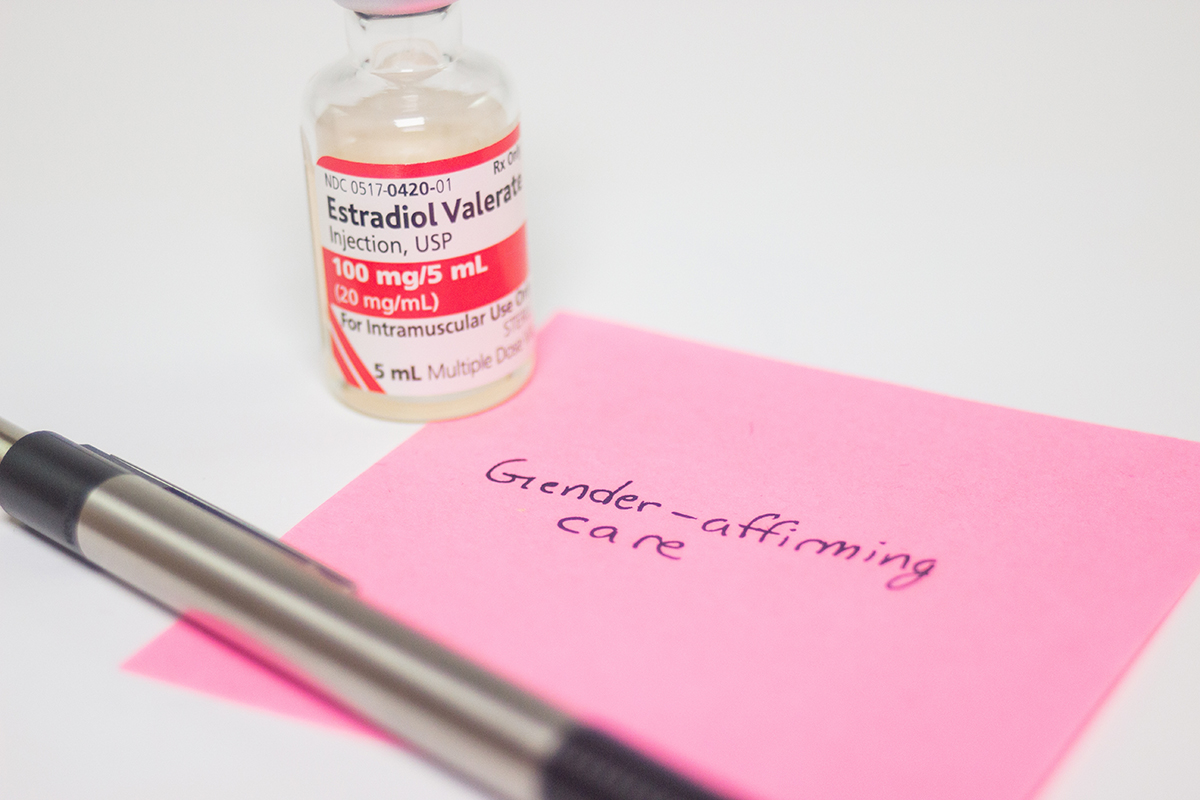
By: Jeremy Henderson-Teelucksingh, DBH Program student at Cummings Graduate Institute for Behavioral Heath Studies, written for the course DBH 9021: Women’s Health
Integrated Behavioral Health Clinical Pathway Proposal: Transgender-affirming Care in the United States
Transgender people experience a gender identity different from their sex assigned at birth (Baker & Restar, 2022; Valente et al., 2022). Transgender is an umbrella term that often includes additional gender identities; however, some gender-nonconforming people prefer to use more precise terminology to identify their gender (Mason et al., 2022). Herein, transgender healthcare refers to the healthcare practice and experiences of transgender people, not those who identify as non-binary, genderqueer, agender, and other gender-nonconforming identities.
Expressing gender characteristics inconsistent with one’s sex assigned at birth is common and natural (Coleman et al., 2022). According to the Williams Institute, a research group at the University of California, Los Angeles School of Law, approximately 1.6 million people in the United States identify as transgender. Of this total, 1.3 million are adults (Herman et al., 2022). Across the United States, transgender people belong to all racial and ethnic identities. However, transgender people are less likely to report a Caucasian racial identity and more likely to report a Latinx identity (Herman et al., 2022). Of the 1.3 million adults reporting a transgender identity, Herman et al. (2022) estimate that 38.5% are transgender women and 25.9% are transgender men. Additionally, these researchers indicated that younger people aged 13 to 17 are more likely to report a transgender identity than older adults (Herman et al., 2022), which may signify the cultural, legal, and healthcare advances in the United States. Baker and Restar (2022) make clear that transgender people may seek gender-affirming care, thus requiring clinical pathways to support transgender people across the lifespan. This research seeks to identify the most effective integrated behavioral health clinical pathways to deliver effective, efficient healthcare to the transgender population.
Transgender-affirming Healthcare
Inherent in transgender-affirming healthcare is the transition from gender identity associated with one’s sex assigned at birth to the gender identity of one’s experienced gender. The transition is divided into social transition and medical transition. However, a transgender person’s transition is non-prescriptive and follows no standard plan since transgender-affirming healthcare depends on the patient’s goals (Baker & Restar, 2022). The University of California, San Francisco (UCSF) is considered a leader in transgender healthcare in the United States. UCSF (n.d.) includes hormone therapy, hair removal, speech therapy, and fertility preservation in the medical transition and demonstration of gender identity in public, gender identity verbalization to others close to the patient, and legal document confirmation of gender identity in the social transition. Baker and Restar (2022) add the rejection of internalized transphobia and gender-affirming surgery, such as facial, chest, and genital surgeries, to the transgender transition process.
The World Health Association for Transgender Health publishes Standards of Care, which defines quality transgender healthcare. The Standards of Care is in its eighth version (SOC8). The SOC 8 identifies social support and stress management as crucial to the success of a transgender patient’s transition (Verbeek et al., 2022). Because transgender patients can lose the support of important people in their lives (Mezzalira et al., 2023), including social support opportunities and coping skills is crucial to the successful transition of transgender patients (Verbeek et al., 2022).
Inclusive Clinical Healthcare Settings
Healthcare clinics provide the environmental context in which transgender-affirming care is delivered. As a result, a focus on transgender-affirming healthcare training and inclusive practices is necessary (Mason et al., 2022). With first contact with any given healthcare provider or clinic, patients are often required to complete paperwork. Forms that include the patient’s legal and preferred name, pronouns, sex assigned at birth, and gender identity are considered inclusive and can help to develop a productive patient relationship starting with treatment initiation (Ingraham et al., 2022). Furthermore, once patients have disclosed their identities and expectations via inclusive forms, Mason et al. (2022) reinforce the importance of using their gender identity, preferred name, and pronouns when addressing the patient.
Reisner et al. (2016) identify two healthcare practices that have successful models for treating transgender patients; Callen-Lorde Community Health Center in New York and Fenway Health in Boston. Both pract

ices use an informed consent model, which renders transgender clinical documentation by a mental health provider an unnecessary barrier to transgender-affirming healthcare delivery. Although the Callen-Lorde Community Health Center clinical pathway was not discoverable, Fenway Health’s clinical pathway is available in Appendix D (Thompson et al., 2021).
Family planning offers patients an additional clinical setting where transgender-affirming care can be delivered. In a national study, transgender patients reported satisfaction with the transgender-affirming care they received at family planning clinics (Ingraham et al., 2022). Study participants reported surprise with the use of informed consent and the ability of clinic staff to support their healthcare needs. However, barriers to care in rural areas still exist (Ingraham et al., 2022).
Ingraham et al. (2022) described increased transgender-affirming care provided at family planning clinics over the past ten years. However, the authors cautioned about seeking care from Catholic-affiliated family planning providers because these establishments often deny care to transgender people. Ingraham et al. (2022) noted that Catholic providers are often banned from providing transgender-affirming care. This prejudicial denial of care limits access to care.
Additional Barriers to Care
Barriers to transgender-affirming care are built into the medical and insurance healthcare system, primarily based on the binary view of gender (Ingraham et al., 2022). To provide quality care to the transgender population, many clinics utilize policies and practices that circumvent barriers to transgender-affirming care (Dowshen et al., 2019). The ingenuity of the professionals who utilize mechanisms to overcome the binary system to find solutions to care delivery deferrals likely saves lives. Treatment delays are associated with worsening mental health symptoms, such as suicidality (Verbeek et al., 2022).
According to Healthcare.gov (n.d.), doctors are tasked with determining medical necessity, and insurance companies are prohibited from limiting sex-specific services because of the patient’s transgender identity. However, to access transgender-affirming care, such as those healthcare services described above, insurance companies often require clinical documentation from mental health professionals, which can serve as an additional barrier to treatment (Baker & Restar, 2022). Some insurance plans expressly exclude some or all aspects of transgender- affirming care (Healthcare.gov, n.d.). Because of variances in health insurance coverage, the National Center for Transgender Equality (n.d.) advises patients to fully understand the specific requirements of their plan to ensure the patient can receive treatment and share the policy with the appropriate providers to fulfill plan requirements.

Read the Full Paper
To read the complete paper by Jeremy Henderson-Teelucksingh, DBH program student at Cummings Graduate Institute for Behavioral Health Studies, visit: Integrated Behavioral Health Clinical Pathway Proposal: Transgender-Affirming Care in the United States.
About the Author
 Jeremy Henderson-Teelucksingh, MA, MHR, LPC/MHSP, NCC, CCMHC
Jeremy Henderson-Teelucksingh, MA, MHR, LPC/MHSP, NCC, CCMHC
Jeremy Henderson-Teelucksingh, DBH Student at Cummings Graduate Institute for Behavioral Health Studies, is a counselor, leadership and management coach, and corporate and community human relations consultant. Jeremy brings passion, innovation, and creativity to his clients to enable them to live fulfilling lives. As a counselor, Jeremy works with adults, couples, and families, focusing on anxiety and anger, trauma, personality disorders, relationships, and issues related to adoption and foster care. Jeremy works with the LGBTGEQIAP+ community and is an “out” counselor with a history of diversity, equality, equity, inclusion, and belonging advocacy.
Before becoming a clinical mental health counselor, Jeremy spent nearly 20 years in the technology industry. Jeremy was frequently the first-ever employee engagement leader guiding the employee, manager, and leadership experiences at companies like Salesforce, eBay, VeriSign, and Aricent (now Capgemini). Currently, in addition to providing mental health services, Jeremy serves as Chief Operating Officer at Centro Health Solutions, a Nashville health tech start up creating a better way to healthcare by putting the patient at the center of their healthcare experiences and wrapping their providers around them.






























